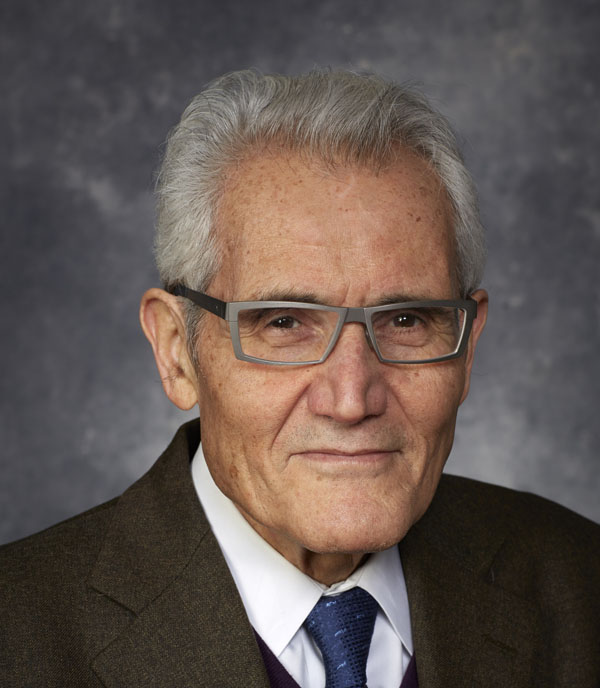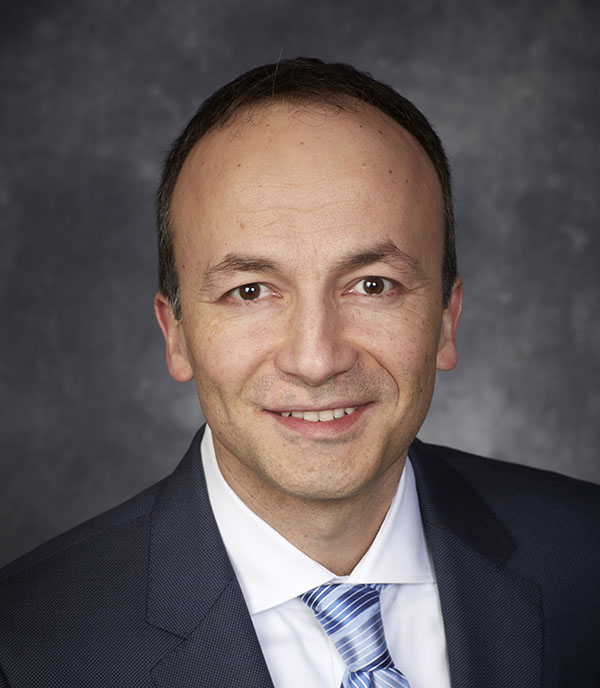
Dr. Alain Bensoussan
Two professors in the Naveen Jindal School of Management’s operations management program — Dr. Alain Bensoussan and Dr. Özalp Özer — recently were awarded grants by the National Science Foundation.
“We are especially pleased to have two research grants from the National Science Foundation awarded to our faculty in recent months,” said Dr. Hasan Pirkul, dean of the Jindal School. “Our faculty and our centers, such as the International Center for Decision and Risk Analysis, are solving real-world problems relevant to the industry’s needs of today.”
Bensoussan, professor of risk and decision analysis and Ashbel Smith Professor, was awarded a $208,559 grant in August for a project titled “New Problems in Mean Field Control Theory.”
Bensoussan said mean field game theory research seeks to help decision-makers in large communities.
The fundamental idea is to adapt to social sciences the idea in physics and mechanics that allows the macroscopic behavior of fluids or gas to be described without considering simultaneously the motion of individual particles, Bensoussan said. Instead, one considers a representative particle, whose dynamics are influenced by a term — called the mean field term — representing an averaging effect coming from all other particles.
“In social sciences, particles are replaced with agents,” Bensoussan said. “An important difference with physics is that agents are decision-makers, and dynamics depend on decisions. An immediate example is modeling traffic on highways.”
The current project will investigate new control problems, as well as develop economic applications.
Dr. Jameson Graber of Baylor University, who previously was affiliated with the center, is the co-principal investigator. Baylor is a subcontractor.
Bensoussan, who serves as director of the International Center for Decision and Risk Analysis, also was awarded an NSF grant for his research on decision-making in 2005, 2007 and 2013.
“The International Center for Decision and Risk Analysis is very pleased with the grant, mainly because it represents an acknowledgement of the quality of the research accomplished by its representatives,” Bensoussan said. “It is also a contribution to the accomplishments of the University, for which research is a top priority. This project allows support for PhD students as well as facilitating cooperation with the worldwide experts in the domain.”

Dr. Özalp Özer
Özer, professor of management science and Ashbel Smith Professor, received a $200,503 grant for his research project, “EAGER: An Exploratory Approach for Managing Multiple Flows in Serial Supply Systems.”
Özer said the goal of his research is to develop a new approach to analyzing and managing flow of items, including products, patients and signals, through large-scale systems, such as those encountered in supply chains, financial markets or communication networks.
Özer said such systems are prevalent in the global economy: in manufacturing systems where production proceeds through distinct stages; in logistics networks in which goods are transported from one location to another; and in communication networks in which messages are transmitted from one node to the next until they reach the recipient.
“The growing complexity of such systems makes them increasingly difficult to effectively manage, and the existing analytical tools for doing so no longer suffice,” he said. “Our research ultimately seeks to provide public and private institutions with algorithms — and control mechanisms — to effectively manage such systems with fewer disruptions.”
Özer previously has received several grants through NSF programs such as Grant Opportunities for Academic Liaison with Industry (GOALI), Early-concept Grants for Exploratory Research (EAGER) and I-Corps, as well as from global corporations.
Dr. Alex Angelus, a visiting assistant professor in operations management, also is involved in the project.
“We are both excited to be undertaking a research initiative with high potential impact on practice, together with PhD students,” Özer said, “and in doing so, we also are helping contribute to UTD’s growing reputation.”